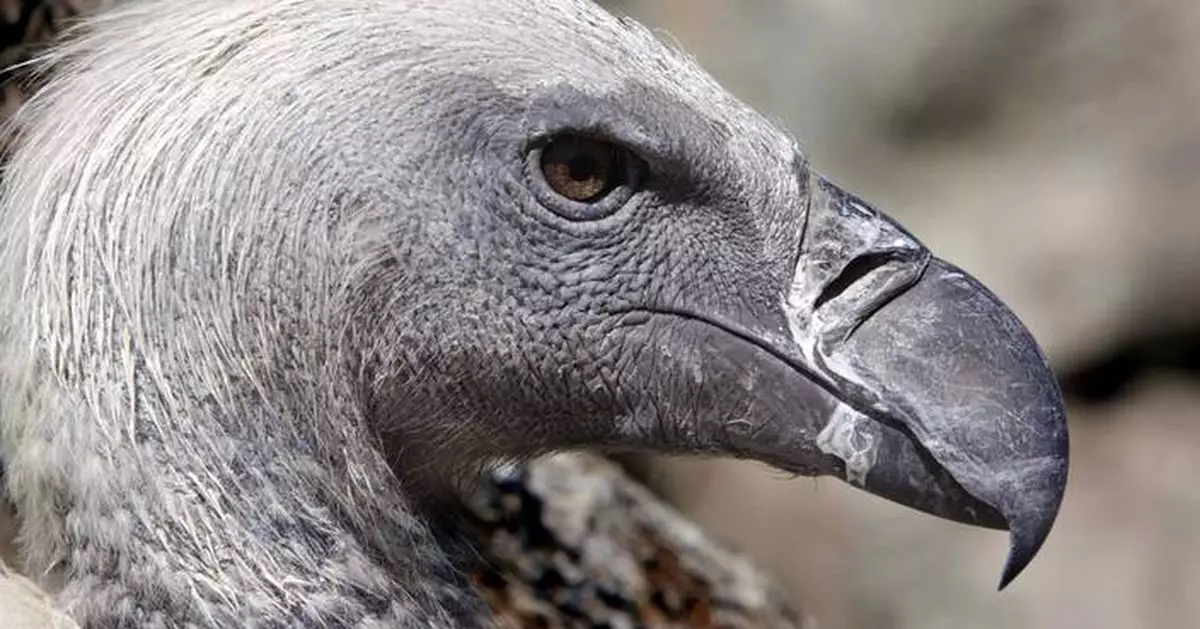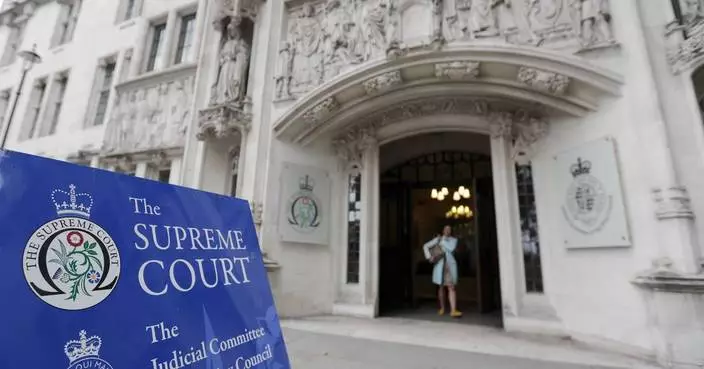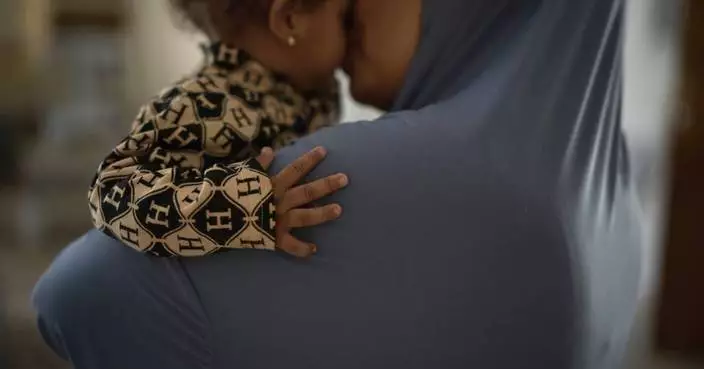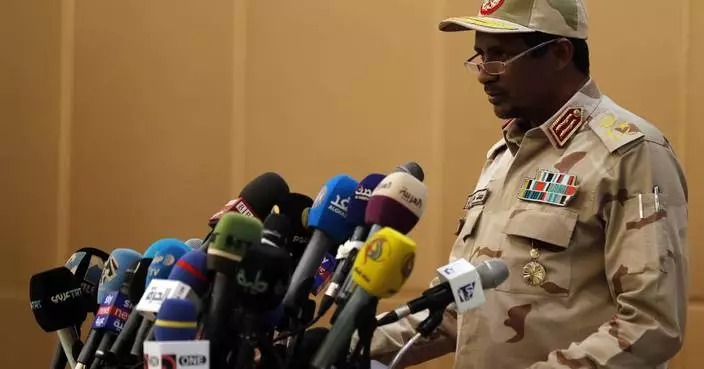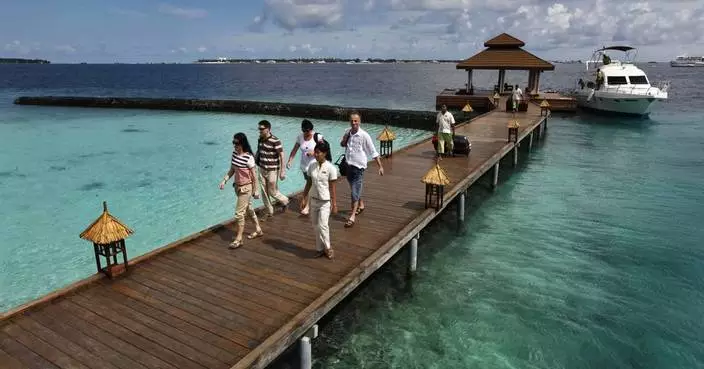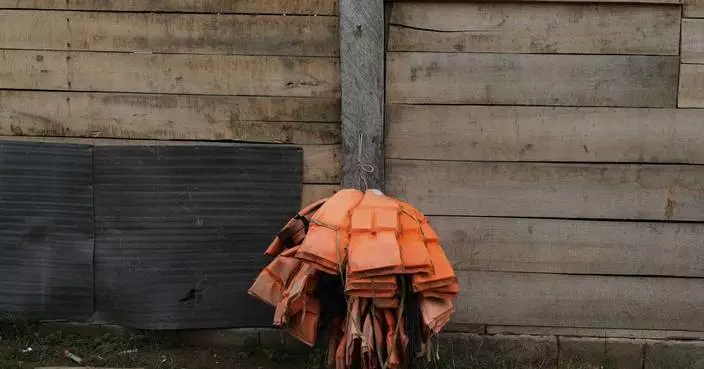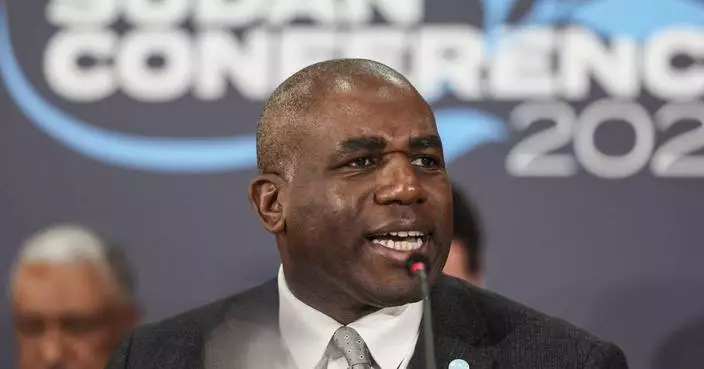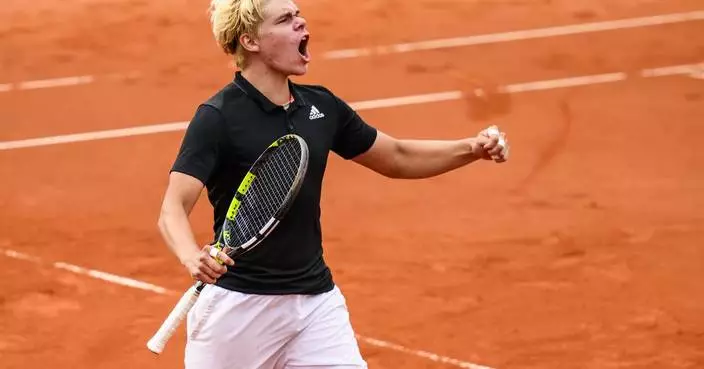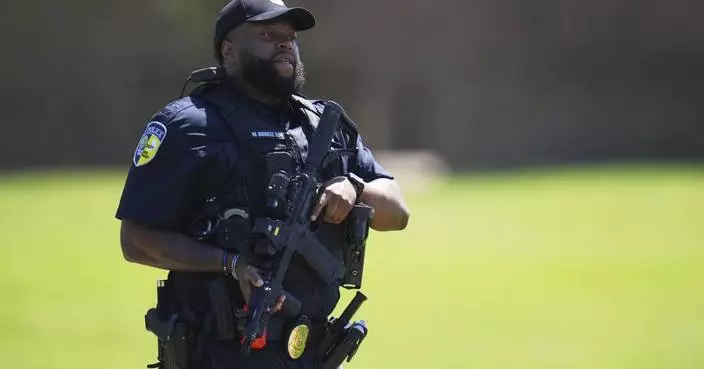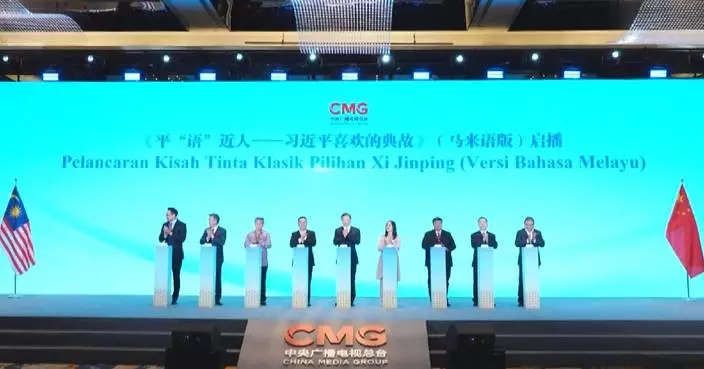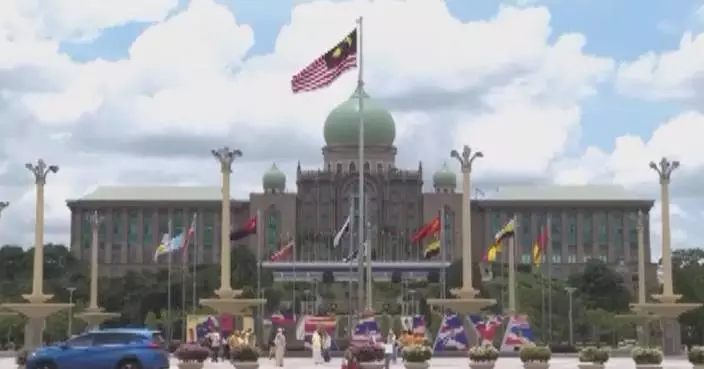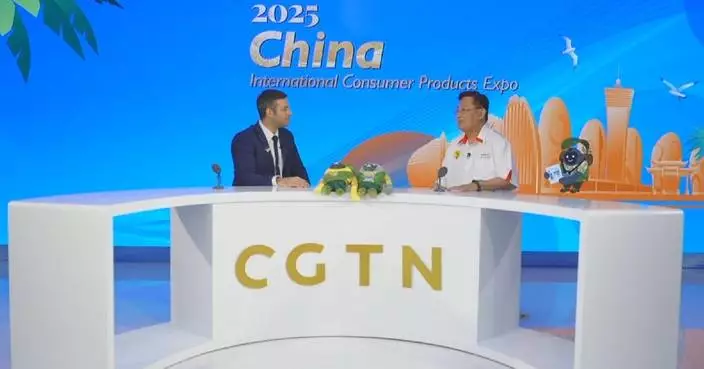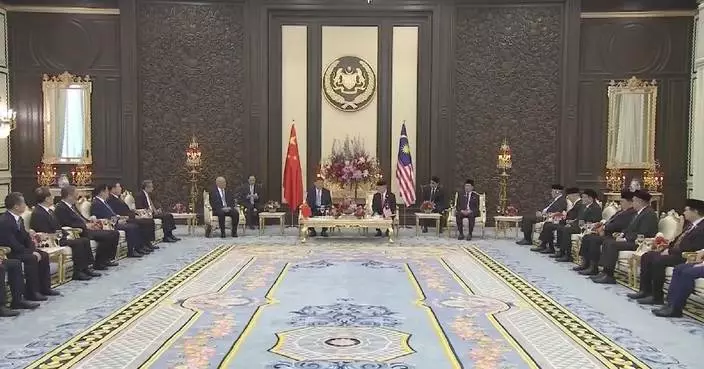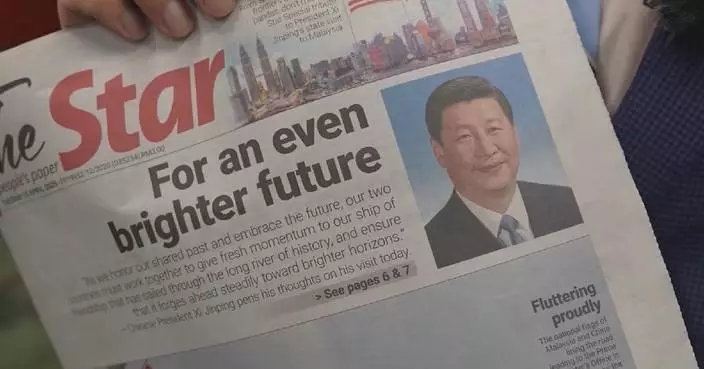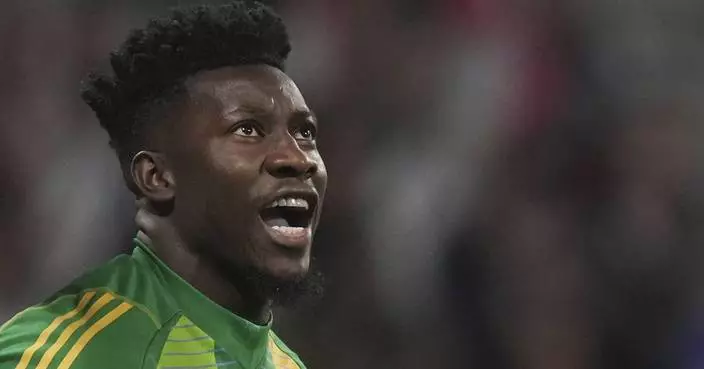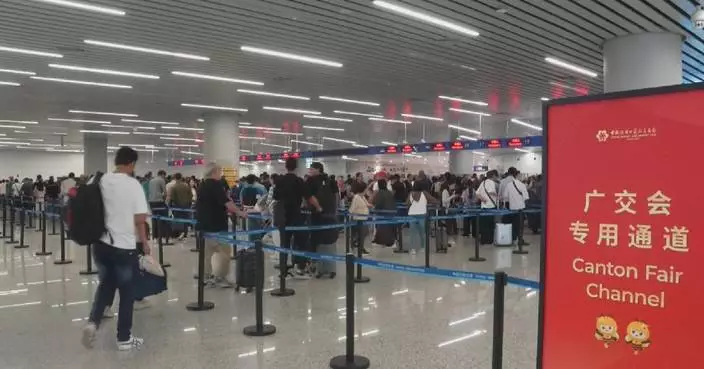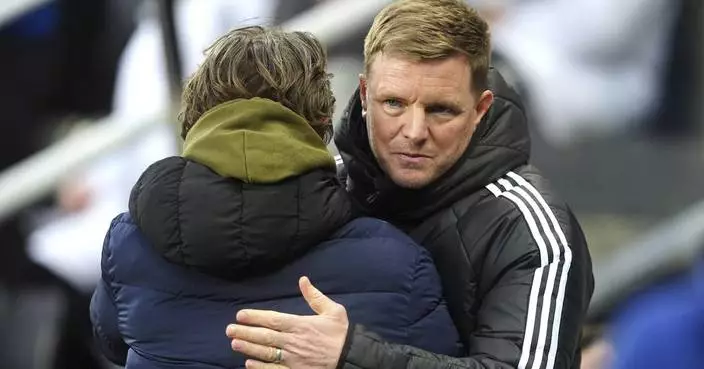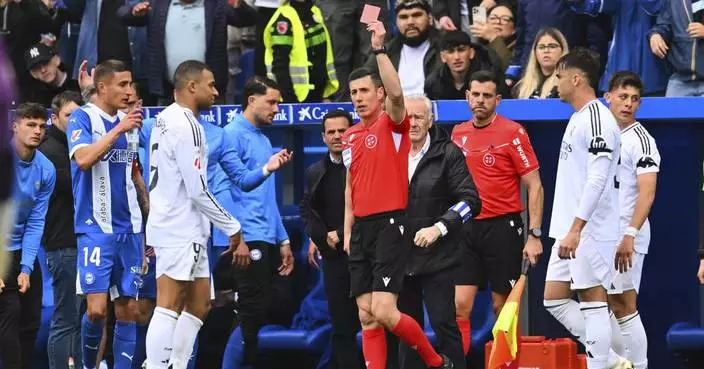CAPE TOWN, South Africa (AP) — Vultures have an image problem. Seen as ugly and associated with death, they are among the least loved animals in the world. But conservationists in Africa are trying to change that.
They've launched an effort to save endangered vultures by trying to put a dollar figure on their incredible value.
A recent report by the BirdLife International conservation organization estimated that vultures are worth $1.8 billion a year to certain ecosystems in southern Africa, which might surprise anyone not familiar with the clean-up, pest control and anti-poaching work performed by one of the most efficient scavengers on the planet.
“They are not up there on the pretty scale. And they are not popular. But we know they are very useful,” said Fadzai Matsvimbo, an extinction prevention coordinator at BirdLife International.
The report comes at an important time for Africa's vultures; six of the 11 species found on the continent are listed as endangered or critically endangered by the International Union for Conservation of Nature, which says vultures are highly threatened in many parts of the world. In Africa, some species have declined by nearly 90%, Matsvimbo said.
Conservationists hope the report will make authorities and the public more aware of the positive impact of vultures.
It focused on research in Botswana, Zambia and Zimbabwe and shows how a wake of vultures — the term for a group of feeding vultures — can strip a decomposing carcass in hours, cleaning up ecosystems, reducing the chance of disease spreading and the presence of pests like rats and feral dogs, which has great benefits to communities.
Vultures also have extremely strong stomach acid, don't get food poisoning and are able to consume and neutralize anthrax, botulism and other bacteria and toxins in carcasses that would kill other animals, removing deadly threats from the environment. Just this week, more than 50 hippos died from suspected anthrax poisoning in a reserve in Congo.
Vultures are nature’s “best sanitation services,” said Matsvimbo. Conservationists have raised the case of the drastic loss of vultures in India over the last 30 years and how that led to a health crisis. A study published last year said half a million people died in India because of the spread of bacteria and infections in the absence of vultures.
Matsvimbo said vultures in Africa are also used as “sentinels” by game rangers because they are often the first to spot a dead animal and can lead rangers to where poachers might be active. They have even proven useful in helping farmers locate dead or injured livestock.
Vultures are unique among land vertebrates in that they only feed on carrion — dead animals. That makes them especially susceptible to poisoning by humans, either intentionally by poachers and others who want to get rid of them, or by mistake when pests are the target. Hundreds of vultures can die from a single poisoned carcass.
Vultures are also regularly killed or maimed in collisions with powerlines in Africa. And they are increasingly being killed for belief-based reasons, said Kerri Wolter, the CEO of the Vulpro vulture rehabilitation center in South Africa, which treats sick and injured vultures to be released back into the wild.
She said because vultures have such outstanding eyesight and instincts when it comes to finding a dead animal they are viewed by some as being clairvoyant and able to foresee death. Their body parts, and especially their head, are used in potions or as charms to predict the future.
“Our work is to change the mindsets of people,” Wolter said. “For them to see vultures and think, wow that is amazing.”
Matsvimbo and Wolter both said vultures have been given a raw deal by moviemakers in Hollywood, where they are almost always shown as evil and sinister. Movies have done for vultures what “Jaws” did for sharks, Wolter said.
“I love watching ‘The Lion King,’ but every time they do the vulture part, my heart breaks," said Matsvimbo. “Vultures are never portrayed in a positive way. I have a bone to chew with these moviemakers. Or should that be bone to pick?”
AP Africa news: https://apnews.com/hub/africa
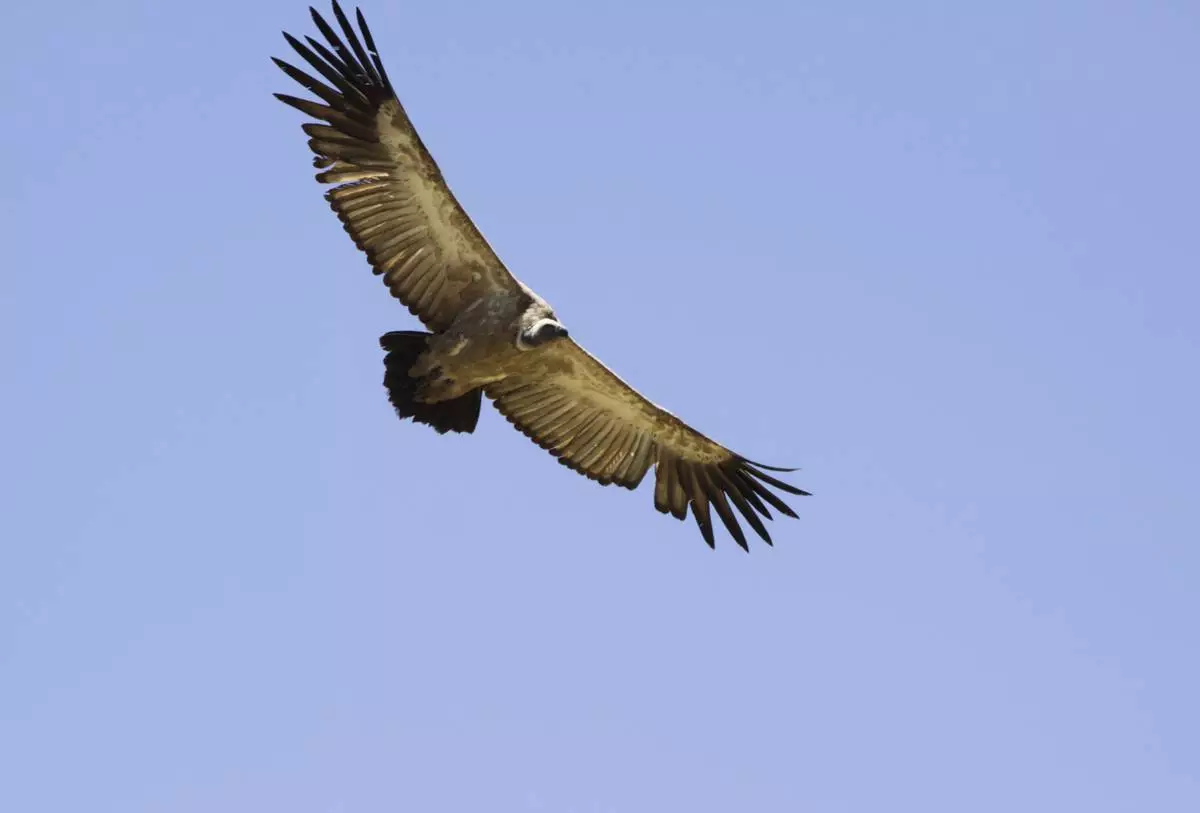
FILE - A Cape vulture hovers over a "vulture restaurant" at the Vulture Programme at Boekenhoutkloof near Hartbeespoort Dam, South Africa on Nov. 25, 2011. (AP Photo/Denis Farrell, File)
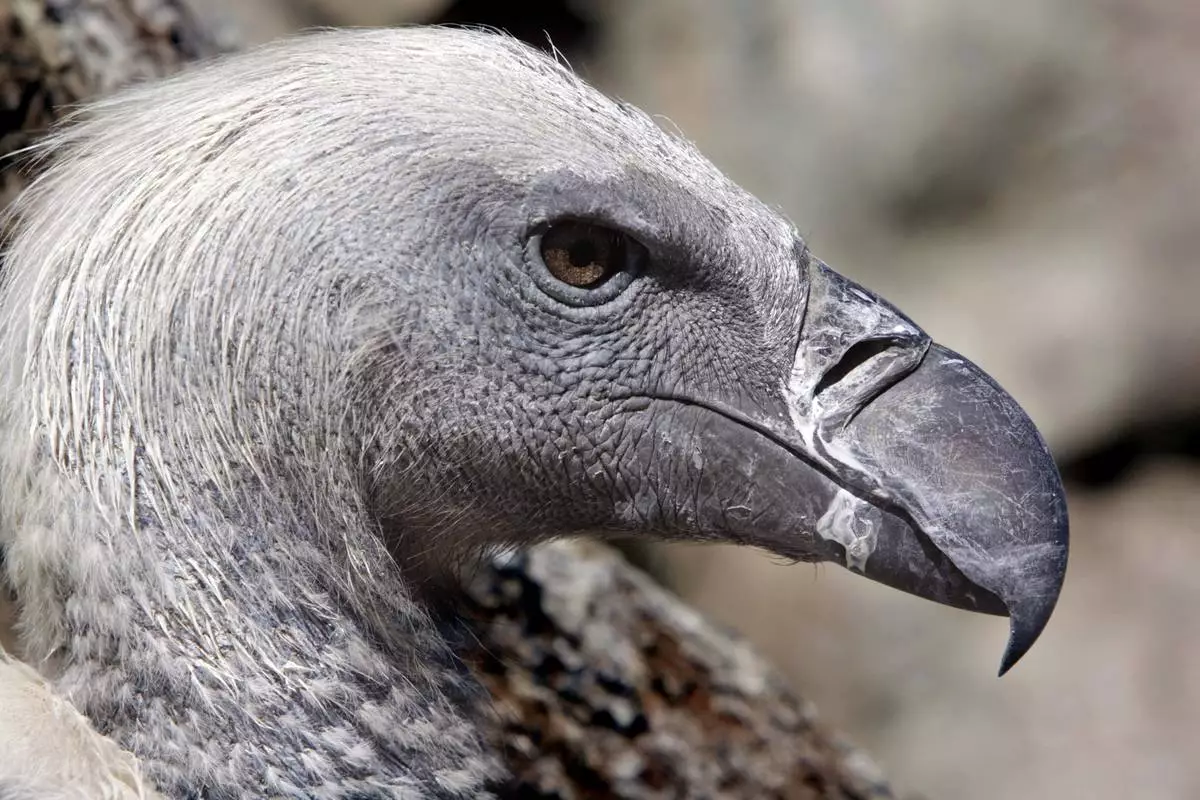
FILE - A Cape vulture is seen in its enclosure at the Vulture Programme at Boekenhoutkloof near Hartbeespoort Dam, South Africa on Sept. 22, 2011. (AP Photo/Denis Farrell, File)
DUBAI, United Arab Emirates (AP) — Iran 's president formally approved the resignation of one of his vice presidents who served as Tehran's key negotiator in its 2015 nuclear deal with world powers, just as the head of the United Nations' nuclear watchdog was due to arrive in the Islamic Republic on Wednesday.
President Masoud Pezeshkian's announcement late Tuesday regarding Mohammad Javad Zarif comes as Iran prepares for a second round of negotiations with the United States over its rapidly advancing nuclear program.
Meanwhile, the visit by Rafael Mariano Grossi, the head of the International Atomic Energy Agency, scheduled to start Wednesday may include negotiations over just what access his inspectors can get under any proposed deal.
The stakes of the negotiations couldn’t be higher for the two nations closing in on half a century of enmity. U.S. President Donald Trump repeatedly has threatened to unleash airstrikes targeting Iran’s nuclear program if a deal isn’t reached. Iranian officials increasingly warn that they could pursue a nuclear weapon with their stockpile of uranium enriched to near weapons-grade levels.
Zarif served as a key supporter of Pezeshkian in his election last year but drew criticism from hard-liners within Iran's Shiite theocracy, who long have alleged Zarif gave away too much in negotiations.
In March, Zarif tendered his resignation to Pezeshkian. However, the president did not immediately respond to the letter. Zarif has used resignation announcements in the past in his political career as leverage, including in a dispute last year over the composition of Pezeshkian’s Cabinet. The president had rejected that resignation.
But on late Tuesday, a statement from the presidency said Pezeshkian wrote Zarif a letter praising him but accepting his resignation.
“Pezeshkian emphasized that due to certain issues, his administration can no longer benefit from Zarif’s valuable knowledge and expertise,” a statement from the presidency said.
The president in a decree appointed Mohsen Ismaili, 59, to be his new vice president for strategic affairs. In Iran's political system, the president has multiple vice presidents. Ismaili is known as a political moderate and a legal expert.
Grossi meanwhile was due to arrive in Tehran and have meetings with Pezeshkian and others.
Since the nuclear deal’s collapse in 2018 with Trump's unilateral withdraw of the U.S. from the accord, Iran has abandoned all limits on its program, and enriches uranium to up to 60% purity — near weapons-grade levels of 90%.
Surveillance cameras installed by the IAEA have been disrupted, while Iran has barred some of the Vienna-based agency’s most experienced inspectors. Iranian officials also have increasingly threatened that they could pursue atomic weapons, something the West and the IAEA have been worried about for years since Tehran abandoned an organized weapons program in 2003.
Any possible deal between Iran and the U.S. likely would need to rely on the IAEA's expertise to ensure Tehran's compliance. And despite tensions between Iran and the agency, its access has not been entirely revoked.
It remains unclear where the next round of talks will be held, though they are scheduled for Saturday. Officials initially identified Rome as hosting the negotiations, only for Iran to insist early Tuesday they would return to Oman. American officials so far haven’t said where the talks will be held, though Trump did call Oman’s Sultan Haitham bin Tariq on Tuesday while the ruler was on a trip to the Netherlands.
Meanwhile, Iran's Foreign Minister Abbas Araghchi on Wednesday warned the U.S. about taking contradictory stances in the talks.
That likely refers to comments from U.S. Mideast envoy Steve Witkoff, who this week initially suggested a deal could see Iran go back to 3.67% uranium enrichment — like in the 2015 deal reached by the Obama administration. Witkoff then followed up with saying "a deal with Iran will only be completed if it is a Trump deal.”
“Iran must stop and eliminate its nuclear enrichment and weaponization program,” he wrote on the social platform X. “It is imperative for the world that we create a tough, fair deal that will endure, and that is what President Trump has asked me to do.”
Araghchi warned America about taking any “contradictory and opposing stances” in the talks.
“Enrichment is a real and accepted issue, and we are ready for trust building about possible concerns," Araghchi said. But losing the right to enrich at all "is not negotiable.”
Karimi reported from Tehran, Iran.
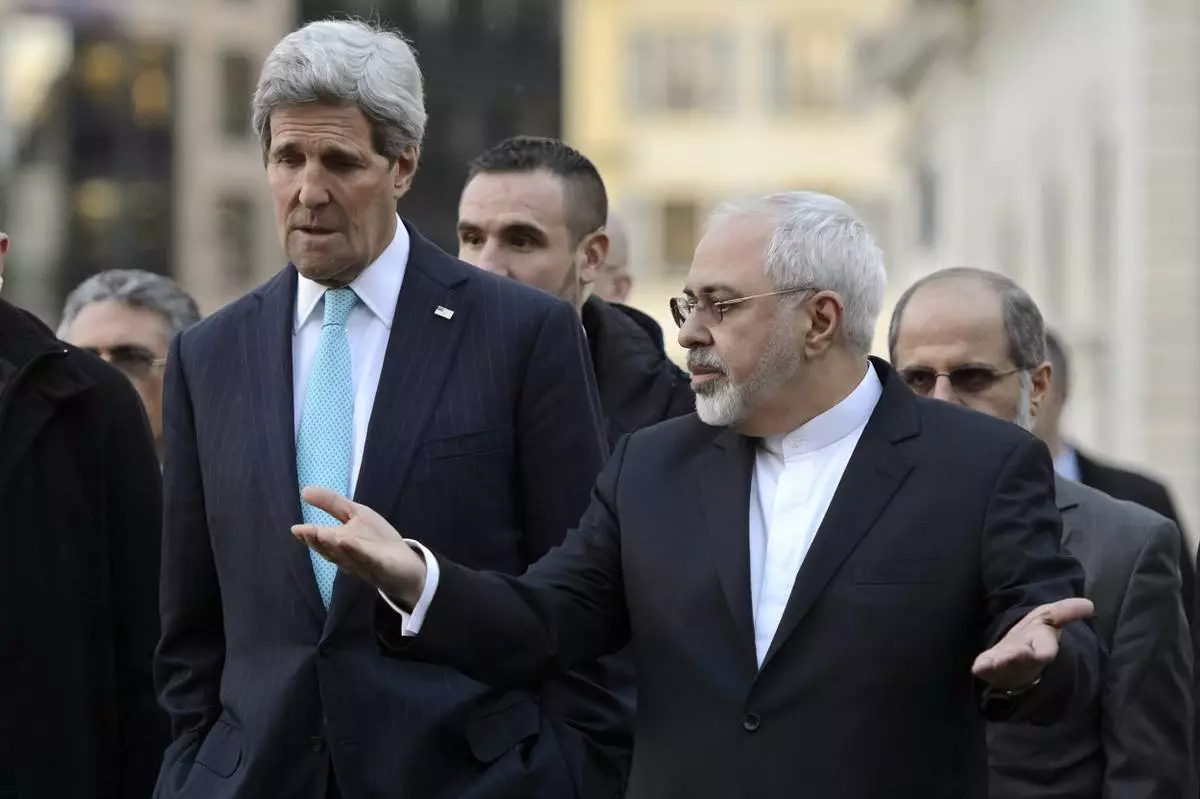
FILE - US Secretary of State John Kerry, left, listens to Iranian Foreign Minister Mohammad Javad Zarif, as they walk in the city of Geneva, Switzerland, Jan. 14, 2015, during a bilateral meeting ahead of the next round of nuclear discussions. (AP Photo/Keystone, Martial Trezzini, File)
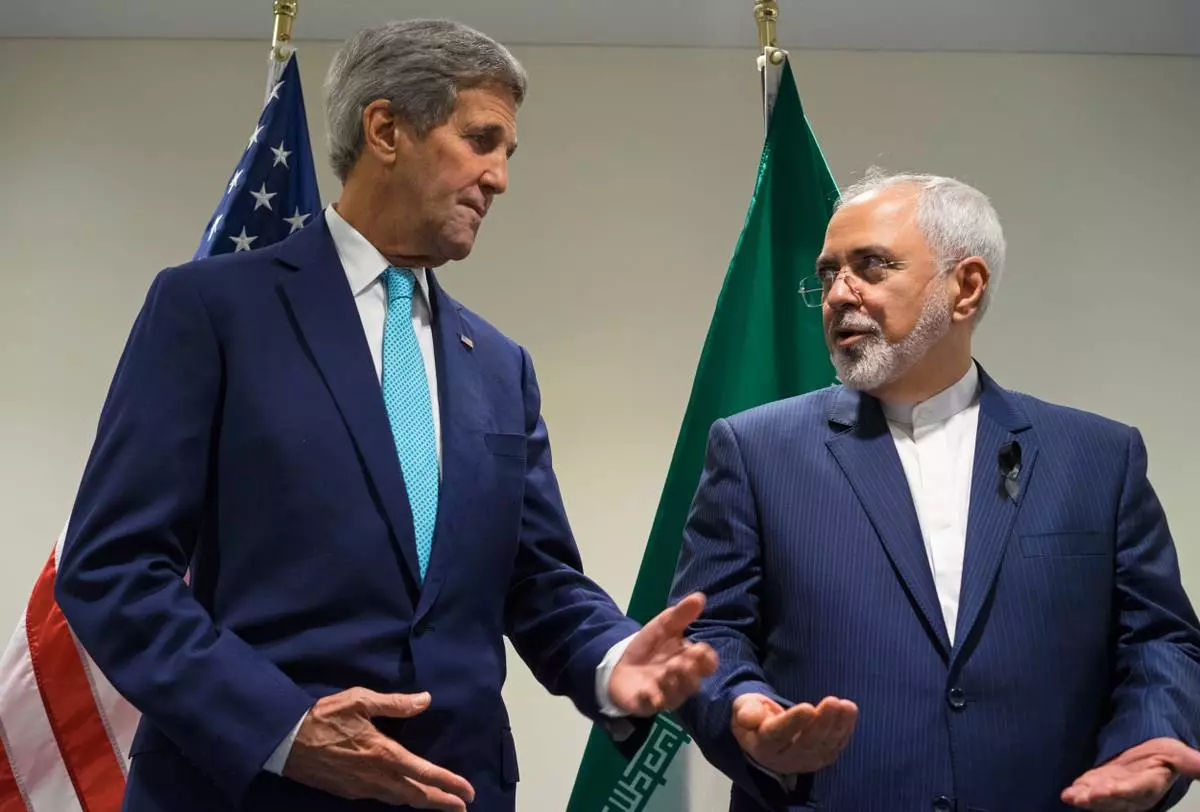
FILE - U.S. Secretary of State John Kerry, left, meets with Iranian Foreign Minister Mohammad Javad Zarif at United Nations headquarters, on Sept. 26, 2015. (AP Photo/Craig Ruttle, File)
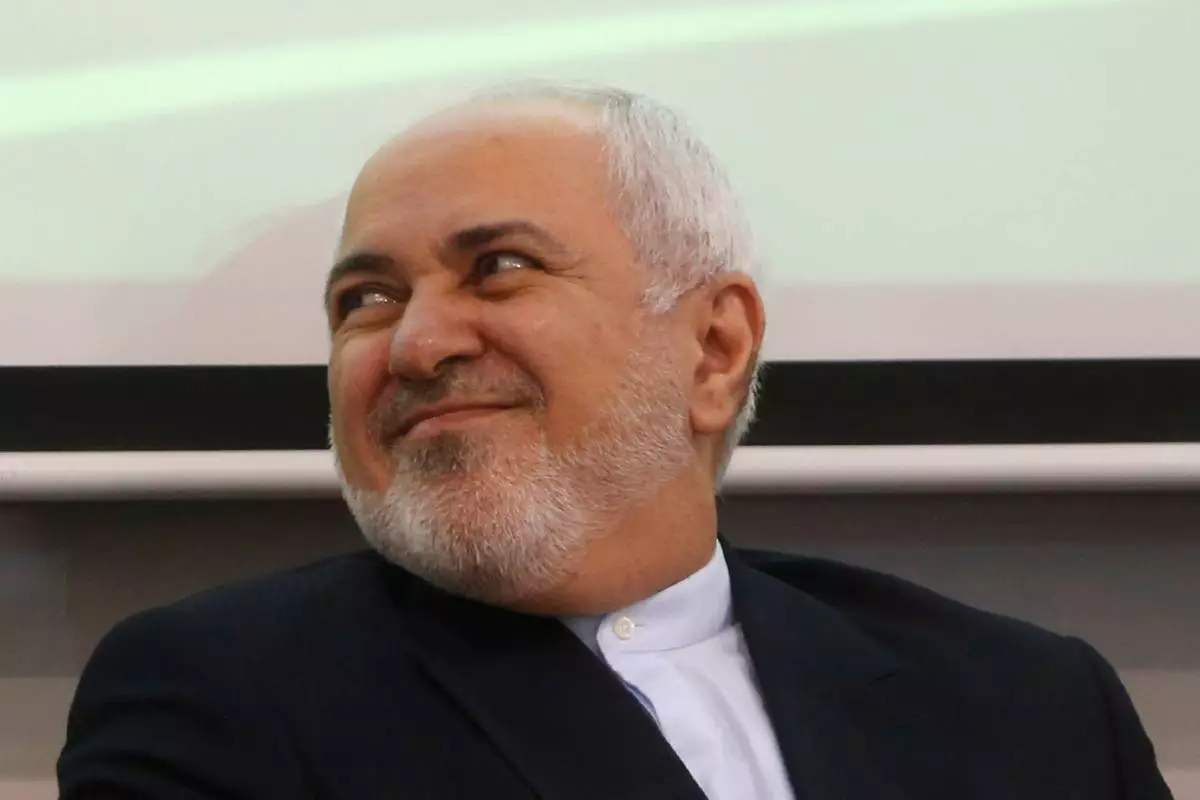
FILE - Iran's Foreign Minister Mohammad Zarif smiles during a meeting with students on a climate change forum at the Gabriel René Moreno Autonomous University, in Santa Cruz Bolivia, on July 23, 2019. (AP Photo/Juan Karita, File)




